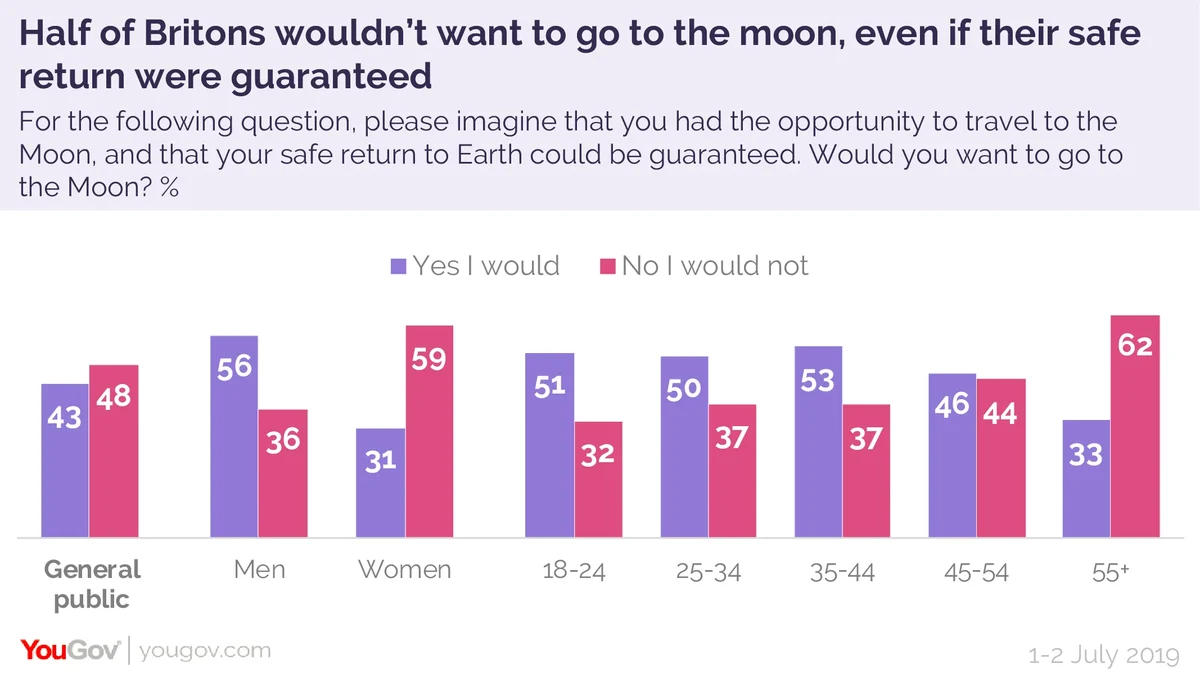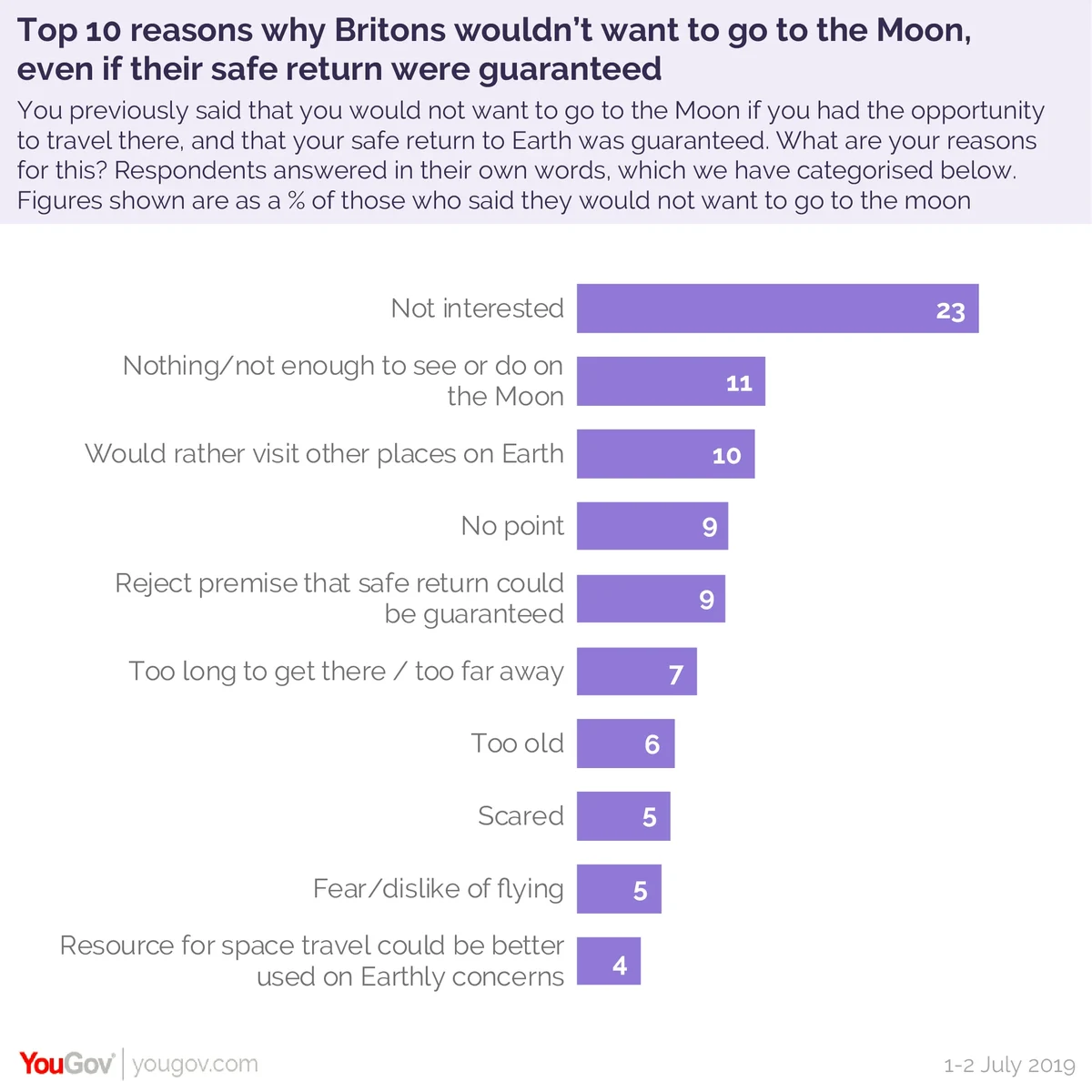The most common reason for turning down the trip of a lifetime is simply a lack of interest, while others complain of a fear of flying
Fifty years ago today Neil Armstrong set foot on the moon and spoke the famous words: “that’s one small step for man, one giant leap for mankind”.
Armstrong is one of only twelve people to have walked on the lunar body, and far fewer Brits want to join the exclusive group than you may think.
A YouGov Realtime survey asked Britons whether they would want to take the trip if given the opportunity and a guarantee of safe return. The nation is split, with 43% saying they would but more (48%) saying they'd turn it down.

We asked those who would turn down such an opportunity of a lifetime to say, in their own words, why. The most common answer (23%) was simply that they had no interest in going to the moon.
Other common answers were that there isn’t enough to see and do on the moon (11%), there are places on Earth they’d rather visit (10%), that there’s no point (9%) or that they rejected the premise that safe return could be guaranteed (also 9%).

Women and older Britons are the most likely groups to confine themselves to the Earth’s atmosphere. A majority of female Brits (59%) say they would not want to visit the celestial body, compared to 36% of men.
Similarly, while 62% of Britons aged 55 and older wouldn’t want to go, this figure is only 32% among those aged from 18 to 24.
Is it worth returning to the moon?
Britons are also split on whether anyone else should bother to go. Half (49%) believe it’s not important that humanity sends astronauts back to the moon, compared to 41% who think it is. In fact, another question in the survey found that 9% of Brits don’t think human exploration of space should take place at all.
Space funding likewise divides opinion. One third (35%) think the UK Space Agency’s £371m budget should be reduced or cut entirely, compared to the 29% who think it should stay the same and the 19% who want to see it increased.
By contrast, a similar survey conducted by YouGov US found Americans far more enamoured with their own space agency. As many as 70% want to see NASA’s budget either protected at current levels or increased.
Most Britons don’t think they’ll live to see humanity’s next big step: Mars
While returning to the moon would still be a major achievement, it does not have the same emotional resonance as taking an entirely new step and landing a man or woman on Mars. Several proposals have been made to send humans to the red planet, including one by SpaceX’s Elon Musk, who wants to send a crew there in 2024.
Nevertheless, most Brits (56%) think it's unlikely they will live to see it. Naturally, age plays a key role in this answer: 72% of the over-55s don’t expect to be around when it happens, compared to only 34% of those aged from 18 to 24.
Photo: Getty










